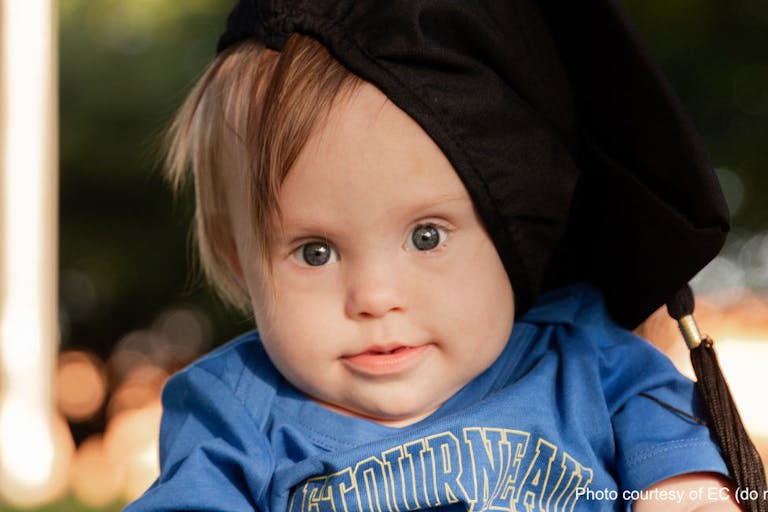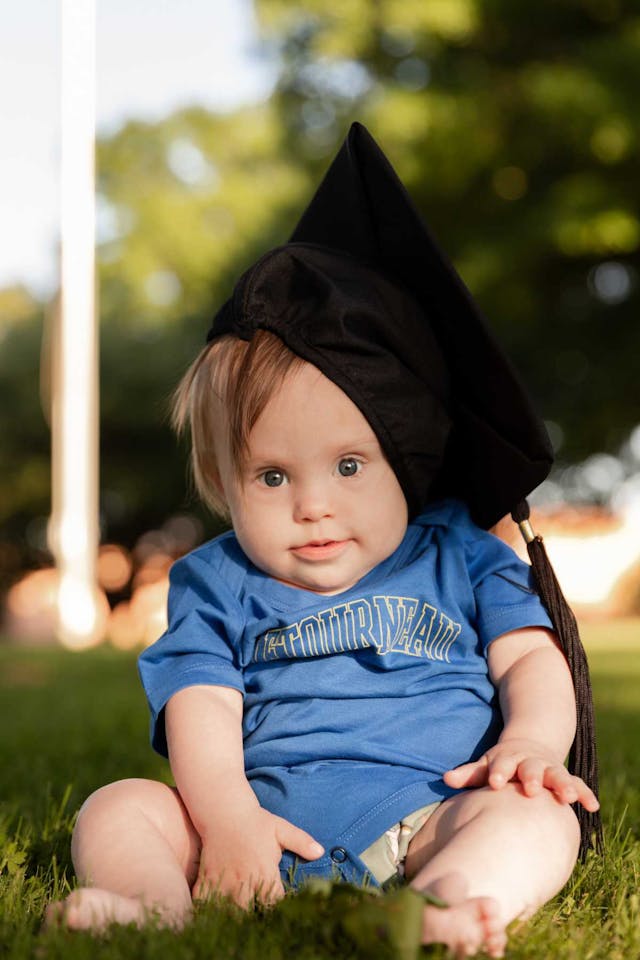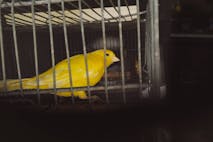
Welsh women denied needed pregnancy medication are getting abortions
Cassy Cooke
·
How one mom learned to trust God’s plan after a Down syndrome diagnosis
Disclaimer: The opinions expressed in this guest post are solely those of the guest author. Live Action News has made minor edits for clarity.
In my Charlotte Mason homeschooling family of five children, my mother worked tirelessly to provide an enriching education, one which respected the personhood endowed upon us from the moment of our conception. Ms. Mason is famous for her first education principle, “Children are born persons.” Not that once a child is born he or she becomes a person, but that personhood is an inherent part of our individual being. This philosophy stayed with me when I left home and went to college.
I attended meetings for my college’s pro-life club and advocated for rights of the unborn when my college textbooks didn’t. I was the annoying student who pushed back when my classes taught that as pre-med students we needed to learn how to educate women on their “reproductive rights” — especially those women suffering from pregnancies with genetic disorders.
Challenges of being student, wife, and mom
My husband and I were open to whatever life God would give us, and after a year and a half of marriage we were expecting our first child. I *knew* that being pregnant and having a baby while a full-time college student would be more work than a typical college experience; however, I didn’t really know just how much this would shape not only my college experience but my whole life. With midwife appointments and trying to rest in-between assignments, my schedule was full.
My son was born at a home birth in campus housing over summer break — a perfect, tiny, squeaky bundle of joy.
He wasn’t like most babies his age: hardly cried and flopped like a rag doll. We found ourselves in the hospital four days after he was born to make sure nothing was wrong; babies shouldn’t be this floppy, should they? One appointment added to another.
First there was trouble nursing, which led to appointments with lactation consultants, which led to getting a tongue and lip tie released, which led to craniosacral therapy, and suddenly school was starting again.
School with a baby was nothing like school while pregnant. Now I had to think about working nursing around my class schedule. Who will watch the baby while I am in class? How am I going to get enough sleep between nightly feedings and studying?
For the first six weeks I brought my little man to class with me. Thankfully, my professors all had kids and were not only understanding but happy for him to tag along. The only time my child projectile-vomited was during one of these “outings,” but my professor helped clean us up and the class moved on.
“He is a normal child”
When I was pregnant, I had a vague feeling something was off: at 10 weeks I started bleeding and I thought I was having a miscarriage. But after a week the bleeding stopped, there was a heartbeat the whole time, and we saw our little man spinning around in my tummy and making finger guns.

Later in the pregnancy I had a dream he had Down syndrome, but I shrugged it off as just motherly worry and didn’t mention it to anyone. My husband and I had chosen not to do genetic screening.
Now that our baby was here, first one month, then two, three, four — he still hadn’t smiled, and still acted like a rag doll. One Saturday when our little man was four months old we decided to take a family outing before his doctor’s appointment (we were fortunate to find a pediatrician who worked on weekends) and go to a class on growing strawberries.
Article continues below
Dear Reader,
In 2026, Live Action is heading straight where the battle is fiercest: college campuses.
We have a bold initiative to establish 100 Live Action campus chapters within the next year, and your partnership will make it a success!
Your support today will help train and equip young leaders, bring Live Action’s educational content into academic environments, host on-campus events and debates, and empower students to challenge the pro-abortion status quo with truth and compassion.
Invest in pro-life grassroots outreach and cultural formation with your DOUBLED year-end gift!
On that beautiful fall day, the wind waved the various tall grasses and native flowers growing where the class was taught, and I was thinking of the strawberry picking that would be coming next spring, maybe even taking my little man if he weren’t so floppy and was crawling by then. (Of course he would be, I thought. What baby doesn’t crawl at almost a year old!)
At the doctor’s office his pediatrician looked at me, then my husband, and asked a very simple question, “Have you noticed anything about his eyes?”
“Yes,” I thought, “they’re almond shaped, almost like someone with Down syndrome.”
Around two weeks later I got a call from the pediatrician. “Emma, the test results are back. He has Down syndrome.” But she didn’t stop by saying that. She went on, “The most important thing you can do for your son is treat him like a normal child. Because he is a normal child.”
Learning to trust in God’s plan
As Charlotte Mason said so many years ago, “Children are born persons.” Charlotte didn’t qualify that statement with “children born genetically normal are persons,” or “children without disabilities are persons.” She simply said, “children are born persons”: all children, regardless of race, status, sex, or genetic makeup.
I grieved after the diagnosis, not because of who my child was, because he was the same little man he had always been; I grieved picking strawberries with a little one year old crawling around. I grieved over plans I had made for his future.
And then I realized that all these notions I was grieving were my idea of who he was, not God’s.
He is a unique person. He loves poetry, especially Now We Are Six, and, although he is still quite floppy, he loves to explore as best he can the world he was placed in.
Roughly six months after his diagnosis, I graduated from college with honors. My mother-in-law commented that as I walked down the stage with my diploma I looked relieved. And I was, but not for the reasons most may have thought.

I was relieved because I was starting to learn how to trust in God’s plan, and while the door was closing on one season of my life, it was just beginning to crack open on another.
I was on a journey with a little person, who has his own unique and valuable life ahead of him, for children are conceived persons.
Bio: Emma Cochrane is a homeschooling graduate and mum to one little one. She is passionate about sharing her calling to homemaking and motherhood with others. She enjoys spending her days baking fresh bread, reading, or chasing her little one around outside. You can find her blogging at downwithmotherhood.wordpress.com.
Live Action News is pro-life news and commentary from a pro-life perspective.
Contact editor@liveaction.org for questions, corrections, or if you are seeking permission to reprint any Live Action News content.
Guest Articles: To submit a guest article to Live Action News, email editor@liveaction.org with an attached Word document of 800-1000 words. Please also attach any photos relevant to your submission if applicable. If your submission is accepted for publication, you will be notified within three weeks. Guest articles are not compensated (see our Open License Agreement). Thank you for your interest in Live Action News!

Cassy Cooke
·
Guest Column
Dave Andrusko
·
Guest Column
Elizabeth Sutcliffe
·
Guest Column
Mark Lee Dickson
·
Guest Column
Right to Life UK
·
Politics
Tyler O'Neil
·